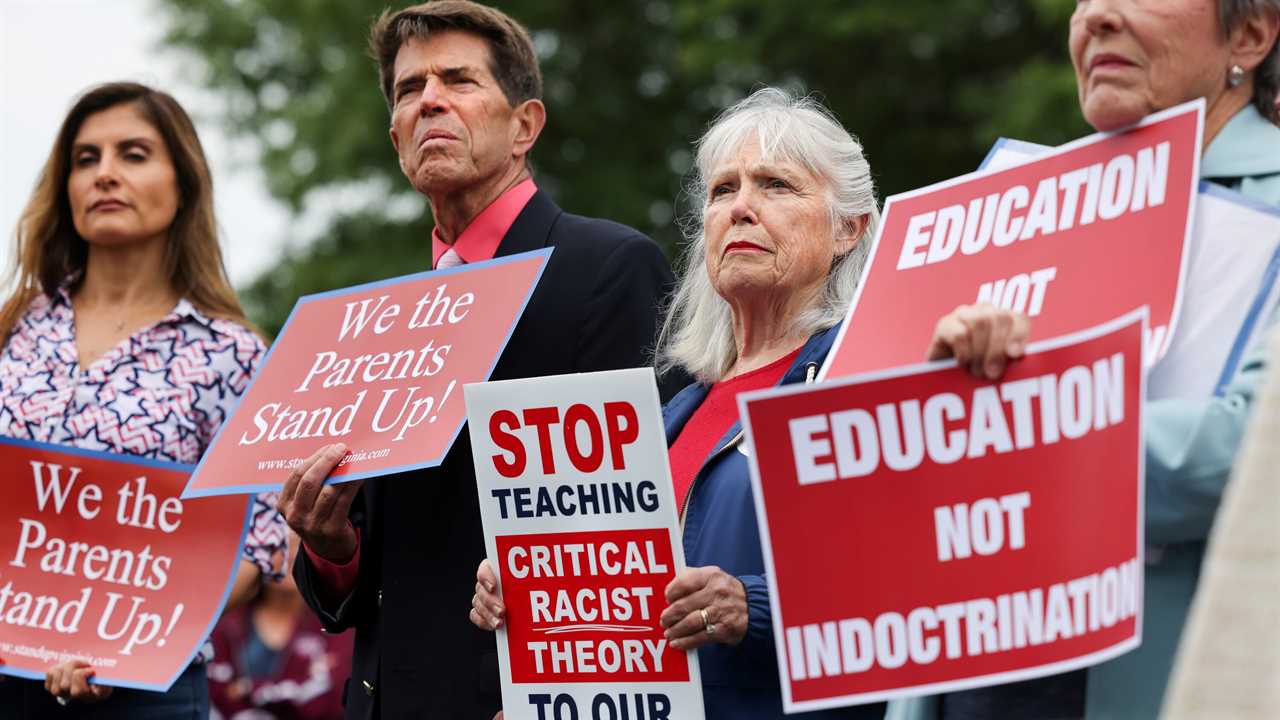
When Republicans lost big in the 2012 election, the party commissioned a post-mortem analysis that arrived at a blunt conclusion about the way it communicated: “The Republican Party needs to stop talking to itself,” said the report, informally known as “the autopsy.”
After the elections last week, in which Democrats across the country lost races they expected to win or narrowly escaped defeat, some are asking whether the Democratic Party is suffering from a similar problem of insularity in its messaging.
Critics and some prominent liberals like Ruy Teixeira, a left-of-center political scientist, have argued that Democrats are trying to explain major issues — such as inflation, crime and school curriculum — with answers that satisfy the party’s progressive base but are unpersuasive and off-putting to most other voters.
The clearest example is in Virginia, where the Democratic candidate for governor, Terry McAuliffe, lost his election after spending weeks trying to minimize and discredit his opponent’s criticisms of public school education, particularly the way that racism is talked about. Mr. McAuliffe accused the Republican, Glenn Youngkin, of campaigning on a “made-up” issue and of blowing a “racist dog whistle.”
But about a quarter of Virginia voters said that the debate over teaching critical race theory, a graduate-level academic framework that has become a stand-in for a debate over what to teach about race and racism in schools, was the most important factor in their decision, and 72 percent of those voters cast ballots for Mr. Youngkin, according to a survey of more than 2,500 voters conducted for The Associated Press by NORC at the University of Chicago, a nonpartisan research organization.
The nuances of critical race theory, which focuses on the ways that institutions perpetuate racism, and the hyperbolic tone of the coverage of the issue in conservative news media point to why Democrats have struggled to come up with an effective response.
Mr. Teixeira calls the Democrats’ problem with critical race theory and other galvanizing issues the “Fox News Fallacy.”
These issues are ripe for distortions and exaggeration by Republican politicians and their allies in the news media. But Mr. Teixeira says Democrats should not dismiss voters’ concerns as simply right-wing misinformation.
“An issue is not necessarily completely invalid just because Fox News mentions it,” he said.
In an interview, Mr. Teixeira said his logic applied to questions far beyond critical race theory. “I can’t tell you how many times I analyze a particular issue, saying this is a real concern,” he said. “And the first thing I hear is, ‘Hey, this is a right-wing talking point. You’re playing into the hands of the enemy.’”
Fox News is not the only institution capable of producing this kind of reaction from some on the left — it was just the one Mr. Teixeira chose to make his point as vividly as possible.
The conservative news media is full of stories that can make it sound as if the country is living through a nightmare. Rising prices and supply chain difficulties are cast as economic threats on par with the “stagflation” crisis of the 1970s, a comparison that is oversimplified because neither inflation nor unemployment is as high now. Stories of violent crime in large cities are given prominent placement and frequent airing; the same is true of coverage about the record number of migrants being apprehended at the southern border.
The Biden administration has struggled to address concerns about all of these issues. Critics pounced when the White House chief of staff, Ron Klain, posted a tweet that cast inflation and supply chain disruptions as “high class problems,” seeming to dismiss the anxiety that Americans say they have about their own finances.
And despite border crossings hitting the highest number on record since at least 1960, when the government began tracking them, the Biden administration has resisted referring to the issue as a “crisis.” President Biden has faced persistent questions about why he has not visited the border.
Takeaways From the 2021 Elections
Card 1 of 5A G.O.P. pathway in Virginia. The win by Glenn Youngkin, who campaigned heavily in the governor’s race on education and who evaded the shadow of Donald Trump, could serve as a blueprint for Republicans in the midterms.
A rightward shift emerges. Mr. Youngkin outperformed Mr. Trump’s 2020 results across Virginia, while a surprisingly strong showing in the New Jersey governor’s race by the G.O.P. candidate unsettled Democrats.
Democratic panic is rising. Less than a year after taking power in Washington, the party faces a grim immediate future as it struggles to energize voters and continues to lose messaging wars to Republicans.
A new direction in N.Y.C. Eric Adams will be the second Black mayor in the city’s history. The win for the former police captain sets in motion a more center-left Democratic leadership.
Mixed results for Democrats in cities. Voters in Minneapolis rejected an amendment to replace the Police Department while progressives scored a victory in Boston’s mayoral race.
Then there’s crime. After a year and a half of calls from the progressive left for drastic policing reform, voters across the country last week rejected candidates and policies aligned with the “defund the police” movement. In two of the most striking examples, Minneapolis voters said no to a referendum to dismantle their city’s troubled police department. And New Yorkers elected as mayor a former police captain, Eric Adams, who strongly opposes “defund” efforts.
One liberal who apparently recognized the broader problems that Democrats have had explaining their platforms to voters was Maya Wiley, who ran against Mr. Adams in the mayoral primary as a proponent of sweeping police reforms. In an opinion essay for The New Republic this week, Ms. Wiley, a civil rights lawyer, wrote that while Republicans distorted the debate over critical race theory in Virginia, they also offered a more compelling message on education.







